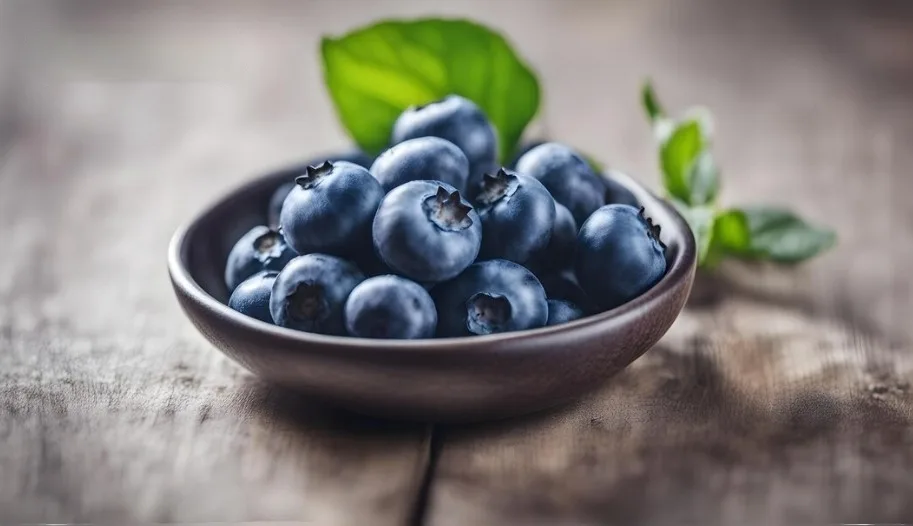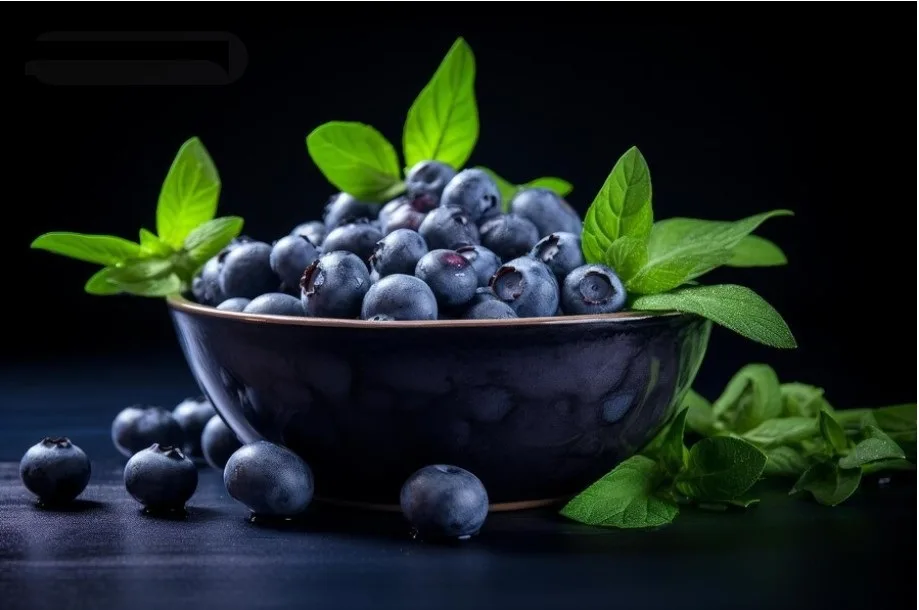Bilberry, known scientifically as Vaccinium myrtillus, is a small, dark blue fruit closely related to the blueberry. This nutrient-dense berry has been celebrated for its potent health benefits and versatile uses for centuries. Rich in antioxidants, vitamins, and minerals, bilberries offer numerous advantages, from improving eye health to supporting cardiovascular wellness. In this article, we will explore the various health benefits and uses of bilberry, making it clear why this superfood deserves a place in your diet.
What is Bilberry?
Bilberry is a fruit that grows on a low-growing shrub native to Europe and parts of North America. It thrives in nutrient-poor, acidic soils typically found in forests and heaths. Bilberries are often mistaken for blueberries due to their similar appearance, but they are smaller, softer, and darker in color. The taste is also more intense and tart compared to blueberries.

Nutritional Profile of Bilberry
Bilberries are a powerhouse of essential nutrients. They are particularly rich in:
- Vitamins: Vitamin C, Vitamin K, and Vitamin E.
- Minerals: Iron, manganese, and copper.
- Antioxidants: Anthocyanins, flavonoids, and phenolic acids.
- Fiber: Dietary fiber which aids in digestion.
Health Benefits of Bilberry
1. Enhances Eye Health
One of the most well-known benefits of bilberries is their positive impact on eye health. Bilberries are rich in anthocyanins, which have been shown to improve vision, particularly night vision. They help protect the eyes from oxidative stress and inflammation, potentially slowing the progression of age-related macular degeneration and cataracts.
2. Supports Cardiovascular Health
Bilberries are beneficial for cardiovascular health due to their high levels of antioxidants and anti-inflammatory properties. Regular consumption can help reduce blood pressure, lower LDL cholesterol levels, and improve overall heart function. The polyphenols in bilberries enhance endothelial function, which is crucial for maintaining vascular health and preventing heart diseases.
3. Improves Cognitive Function
The antioxidants in bilberries are also linked to improved brain health. They help protect brain cells from oxidative damage and reduce inflammation, which are key factors in cognitive decline. Studies suggest that bilberries can improve memory and delay the onset of neurodegenerative diseases such as Alzheimer’s and dementia.
4. Aids in Digestion
Bilberries are an excellent source of dietary fiber, which is essential for a healthy digestive system. Fiber aids in regular bowel movements, prevents constipation, and supports the growth of beneficial gut bacteria. Additionally, the astringent properties of bilberries make them effective in treating diarrhea and other gastrointestinal disorders.
5. Boosts Immune System
The high vitamin C content in bilberries plays a crucial role in enhancing immune function. Vitamin C is a powerful antioxidant that helps the body fight off infections and reduces the duration and severity of colds. Moreover, bilberries’ anti-inflammatory properties further support immune health by reducing chronic inflammation in the body.

Uses of Bilberries
Bilberries can be consumed in various forms, making them a versatile addition to your diet. Here are some common uses:
1. Fresh or Dried Bilberries
Fresh bilberries are delicious and can be eaten on their own or added to a variety of dishes such as salads, yogurt, and cereals. Dried bilberries make a convenient snack and can be used in baking, similar to raisins or dried cranberries.
2. Bilberry Supplements
Bilberry extracts and supplements are widely available in the form of capsules, tablets, and powders. These supplements are a concentrated source of bilberry’s beneficial compounds and are particularly useful for individuals looking to support eye health or enhance their antioxidant intake.
3. Bilberry Tea
Bilberry tea is a popular way to enjoy the benefits of this fruit. It can be made by steeping dried bilberries or bilberry leaves in hot water. The tea is not only refreshing but also provides a boost of antioxidants and vitamins.
4. Bilberry Jam and Preserves
Bilberries can be made into jams, jellies, and preserves. These spreads are a delightful way to incorporate the fruit into your diet, offering a sweet yet healthy option for breakfast or snacks.
Incorporating Bilberry into Your Diet
Incorporating bilberries into your diet can be simple and delicious. Here are some tips:
- Smoothies: Add fresh or frozen bilberries to your morning smoothie for an antioxidant-rich start to your day.
- Baking: Use dried bilberries in muffins, bread, and cookies to add a nutritious twist.
- Salads: Sprinkle fresh bilberries over salads for a burst of flavor and nutrition.
- Cereal and Yogurt: Mix bilberries into your cereal or yogurt for added texture and health benefits.
Conclusion
Bilberries are more than just a tasty fruit; they are a nutritional powerhouse with a wide array of health benefits. From improving eye health to supporting cardiovascular and cognitive function, bilberries offer a natural and effective way to enhance overall wellness. Whether consumed fresh, dried, or in supplement form, incorporating bilberries into your diet can help you harness the full spectrum of their health-boosting properties. Embrace this superfood and enjoy the numerous advantages it brings to your health and well-being.
Topics covered
- What is bilberry / What are bilberries?
- What is nutritional profile of bilberries?
- What are health benefits of bilberries?
- What are uses of bilberries?
- How to use bilberries?








Hey, if you are looking for more resources, check out my website QU5 as I cover topics about Cosmetic Treatment. By the way, you have impressive design and layout, plus interesting content, you deserve a high five!